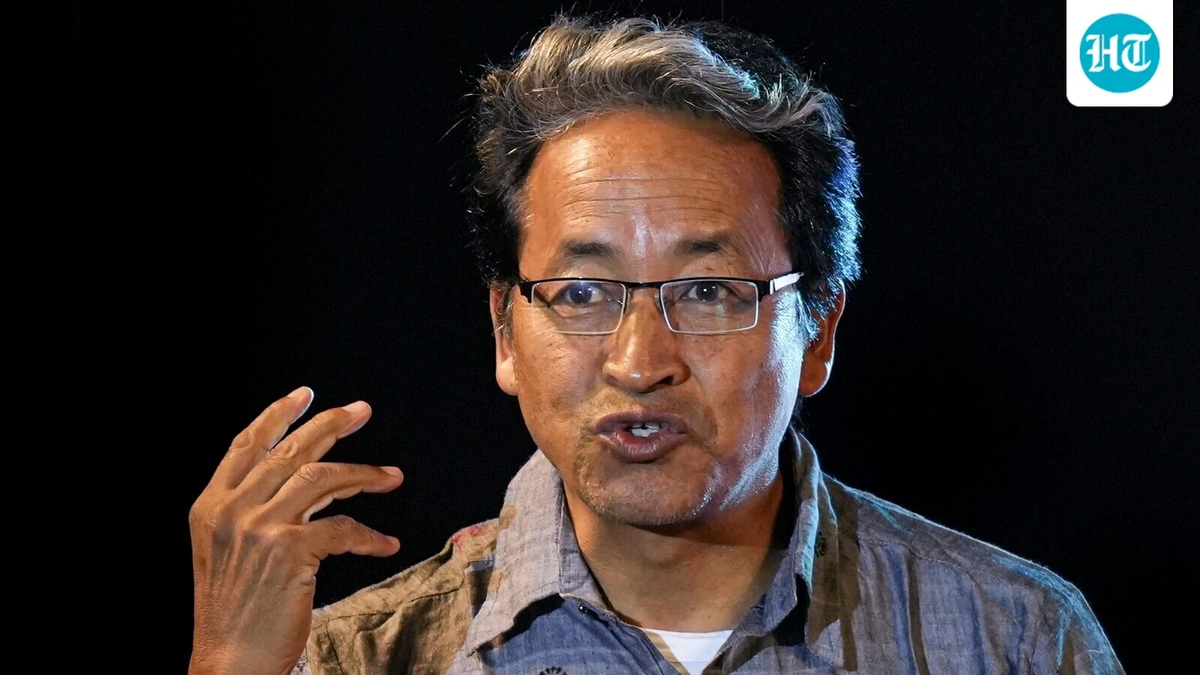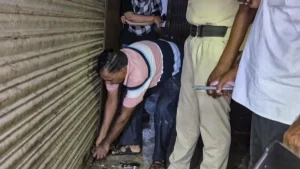Supreme Court Requests Centre, Ladakh Reply on Sonam Wangchuk Detention Plea
Alright, folks, let’s dive into something that’s been buzzing around the news – the alleged detention of Sonam Wangchuk , the Ladakhi engineer and innovator who’s become a symbol of resilience and environmental consciousness. The Supreme Court has officially stepped in, requesting responses from the Centre and Ladakh administration. But here’s the thing – it’s not just about the legal back-and-forth; it’s about why this matters, the ripple effects it could have, and what it says about the state of affairs in the region. It’s about understanding the nuances that often get lost in the headlines.
Why This Plea Matters | More Than Just a Headline

Let’s be honest – the Supreme Court getting involved in a “detention” plea is a big deal. But why? Well, Sonam Wangchuk’s activism and his voice have been crucial in highlighting environmental concerns and advocating for sustainable development in Ladakh. His ‘ice stupas’ are nothing short of genius, addressing water scarcity in the high-altitude desert. What fascinates me is that he has become an icon. When someone like that faces alleged detention, it sends a chilling message. It raises questions about freedom of expression, the right to protest, and the government’s approach to dissent, especially in sensitive regions.
And it’s not just about one person. The implications extend to the broader socio-political landscape of Ladakh. Since the abrogation of Article 370 and the creation of Ladakh as a Union Territory, the region has been undergoing significant changes. There are concerns about land rights, environmental protection, and the preservation of Ladakhi culture. Wangchuk’s activism has been a vocal expression of these concerns. So, any attempt to stifle his voice is seen as an attempt to suppress the concerns of the entire region. It also brings the spotlight on the larger issues of democratic space and civil liberties in the country.
The Heart of the Matter | Environment and Development
Ladakh’s fragile ecosystem is at the heart of this story. Wangchuk has consistently raised alarms about the impact of unchecked development and climate change on the region’s glaciers, water resources, and unique biodiversity. I initially thought, it was a local issue but the impact of glacier melt affects the entire subcontinent. What’s happening in Ladakh has ramifications far beyond its borders. When Wangchuk speaks of these issues, he isn’t just talking about abstract concepts; he’s talking about the very real threat to the livelihoods and well-being of the people who call Ladakh home.
The Supreme Court’s intervention also underscores the importance of balancing development with environmental sustainability. The apex court has often played a proactive role in environmental protection, and this case could set a precedent for how development projects are assessed and implemented in ecologically sensitive areas like Ladakh. The court’s scrutiny could lead to stricter environmental regulations and a more participatory approach to development planning, ensuring that the voices of local communities are heard and their concerns addressed. MSRTC Maharashtra Lifeline
Legal Angles and the Road Ahead
Now, let’s talk about the legal side. The Supreme Court’s request for a response from the Centre and Ladakh administration indicates that it is taking the matter seriously. The court will likely examine the grounds for Wangchuk’s alleged detention, the procedures followed, and whether there has been any violation of his fundamental rights. The court may also consider the larger context of the situation in Ladakh and the concerns raised by Wangchuk regarding environmental and developmental issues.
The Centre and Ladakh administration will have to provide a detailed explanation of their actions. They will need to convince the court that any restrictions on Wangchuk’s freedom were justified and in accordance with the law. The court’s decision will have significant implications for the future of activism and dissent in Ladakh. A ruling in favor of Wangchuk could embolden others to speak out against injustice and environmental degradation, while an adverse ruling could have a chilling effect on freedom of expression. Here’s the thing: this isn’t just a legal battle; it’s a battle for the soul of Ladakh.
What Happens Next? Keeping an Eye on Ladakh
So, what’s the takeaway? The Supreme Court’s involvement brings hope for a fair hearing and a chance to address the underlying issues in Ladakh. It’s crucial to watch how the Centre and Ladakh administration respond. Will they address the concerns raised by Wangchuk? Will they ensure greater transparency and participation in decision-making processes? Or will they continue to stifle dissent and prioritize development at the expense of the environment and the rights of local communities? The coming weeks and months will be crucial in determining the future of Ladakh and the fate of its people. The world is watching.
FAQ Section
Why is Sonam Wangchuk important?
Sonam Wangchuk is a Ladakhi engineer and innovator known for his environmental activism and sustainable solutions, like the ice stupas. He advocates for responsible development in Ladakh.
What environmental concerns has Wangchuk raised?
Wangchuk has voiced concerns about climate change impacts, glacier melt, and unchecked development threatening Ladakh’s ecosystem and the livelihoods of its people. These concerns are connected with Ladakh’s fragile ecosystem .
What is the Supreme Court’s role in this case?
The Supreme Court is examining the alleged detention of Wangchuk and the broader issues of freedom of expression and environmental protection in Ladakh, requesting a response from concerned authorities.
What could be the implications of this case?
The outcome could significantly affect the future of activism, dissent, and environmental policy in Ladakh, setting a precedent for how the government addresses concerns in sensitive regions.
Where can I find more information about this?
Follow news reports from reliable sources like The Hindu, The Indian Express, and NDTV for updates as the case progresses.
How does this relate to Ladakh’s political landscape?
Wangchuk’s case highlights concerns about land rights, cultural preservation, and environmental protection in Ladakh post-Article 370 abrogation, reflecting broader socio-political tensions in the region.













